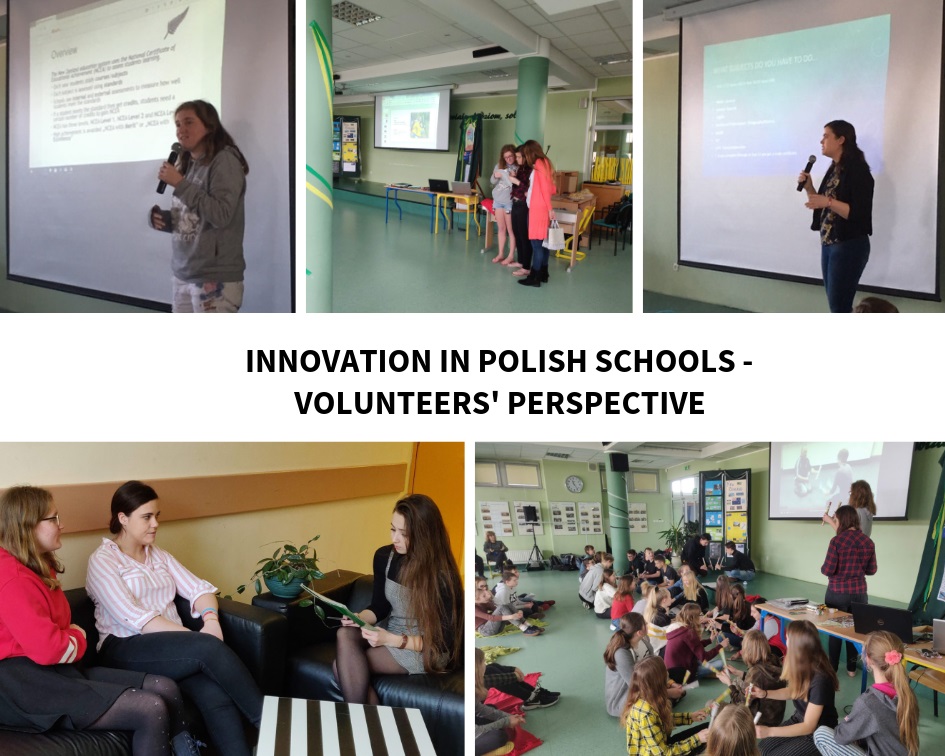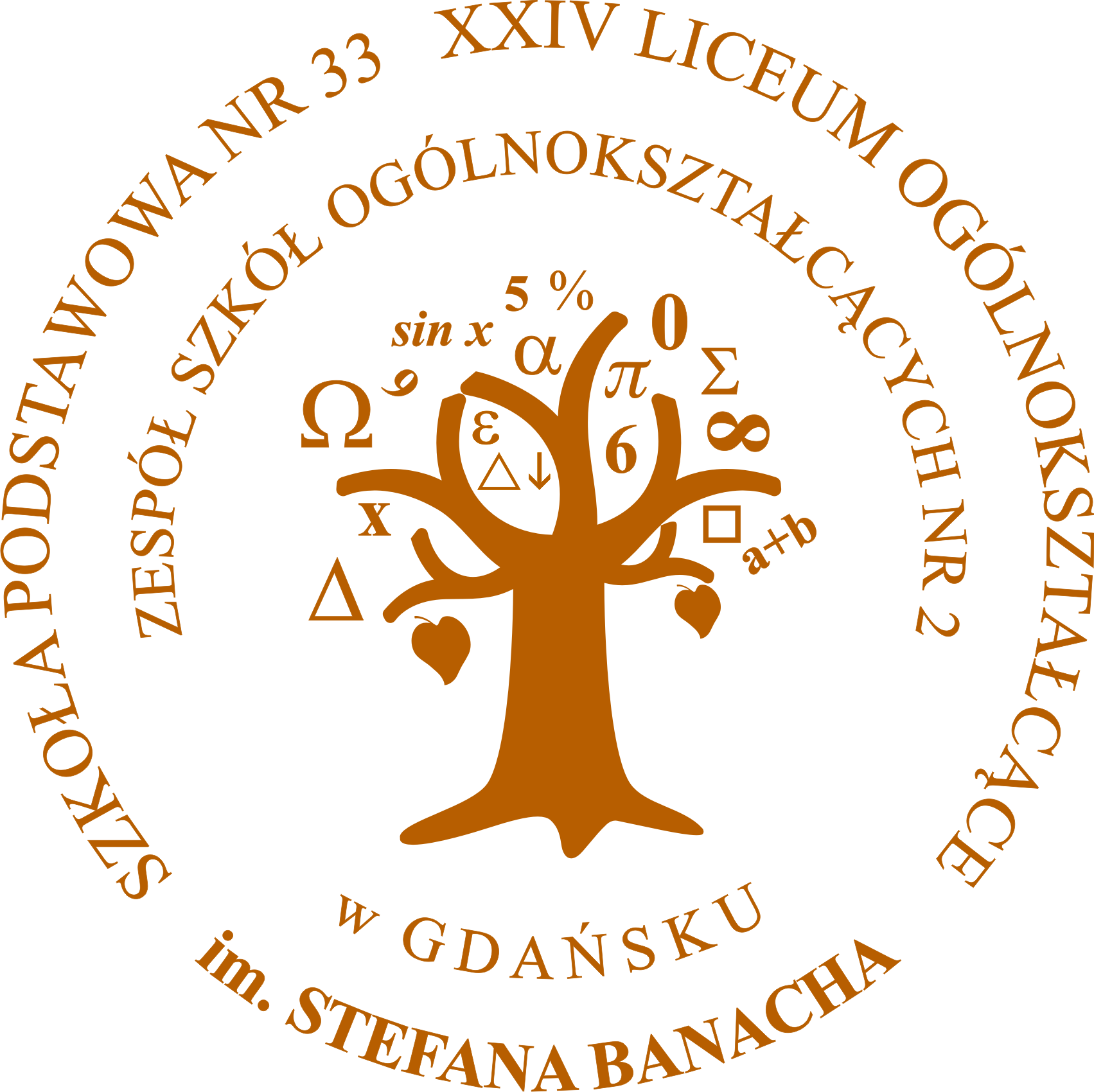Innovation in Polish schools
– volunteers perspective and the debates with Polish students and teachers

Anita:
Similarities between Polish and New Zealand schools
In general the content of lessons is similar especially the sciences
There are a lot of in depth science classes
Students have many of opportunities to meet speakers from different professions
Swimming lessons are encouraged for everyone
Differences between Polish and New Zealand schools
We have longer lessons and fewer breaks in nz
We have more arts subjects for seniors
We have more practical subject choices for students for example; Plunket visits, cooking lessons,
wood working, sewing and finance lessons
I think to improve the system you can’t just take away subjects however, I feel the PE lesson time is
being underutilized. This lessons could be used for Physical Education in a broader sense of the word,
like health classes and practical skill classes. Doing sports for 45 minutes does little to engage older
students and many tell me they skip this lesson to sleep or study in the morning.
Having various speakers from different professions is a great idea and I think it should continue. You
may also benefit from inviting representatives from organisations that would encourage students to
join clubs related to those issues. For example my school has Model United Nations, Amnesty
International, Duke of Edinbourgh, horticulture club, study groups, art club etc. These are almost all
held at school with the help of teachers and some had a competative element like duke of
Edinbourgh award. Alternatively amnesty international is primarily a fund raising and awareness
raising club and art club is for fun but some students use the time to enter local competitions for
fashion, painting and so forth.
I believe you could put more emphasis on learning about how to use technology effectively in
lessons, it will prepare students for the type of research universities expect from them and will
develop their critical thinking.
I also think workshops for the teachers would help. Inviting IT or a speaker who specialising in
integrating technology into the classroom could help improve how the projectors and smart boards
are used.
I think less testing would improve the students lives immensely, memorising answers and phrases
does little to improve the students in depth, critical thinking about the subject matter. It also does
little to prepare them for the real work environment. Most professions don’t make you sit in silence
and do your work without any help from your colleagues. An alternative to tests such as group
assignments, long term or more visual based assignments worth grades would encourage creativity
and problem solving as there is no wrong answer when the task is to create a poster or give your
opinion.
Emily
Teaching „everything” isn’t always useful- Speaking to senior students they find that some of the
subjects they take are on longer useful for them because they don’t fit with what the student has
chosen to do as a career in the future.
Small tests- In my opinion do not work. I agree with Anita here that small tests every week can have a
detramental effect on students, with a constant level of stress and anixety that is not healthy for
students long term. Assignments that test larger amounts of knowledge over a longer period of time
could reduce this problem.
- PE lessons are underutilized. These lessons could be used for Physical Education in a broader
sense of the word, like health classes and practical skill classes. Doing sports for 45 minutes
does little to engage older students and many tell me they skip this lesson - Put more emphasis on learning about how to use technology effectively in lessons, it will
prepare students for the type of research universities expect from them and will develop
their critical thinking. - Alternatives to tests would improve the students lives immensely, memorising answers and
phrases does little to improve the students in depth, critical thinking about the subject
matter. It also does little to prepare them for the real work environment. - IT workshops for the teachers Inviting IT or a speaker who specializes in integrating
technology into the classroom could help improve how the projectors and smart boards are
used. - 45 minutes lessons are too short. It doesn’t always allow for all the content of a lesson. If
the class or the teacher have technical problems it can chew up class time. Longer classes, or
a variation of 45 minute and double lessons can allow students more time to talk to teachers
one on one to better understanding of important concepts. - Teaching „everything” isn’t always useful. Speaking to senior students they find that some
of the subjects they take are no longer useful for them. For example, someone who wants to
be an engineer, may no longer want to study history. The understanding is that the subject
doesn’t fit with what the student has chosen to do as a career in the future. This time could
be better used as study sessions or extra specialized classes.



